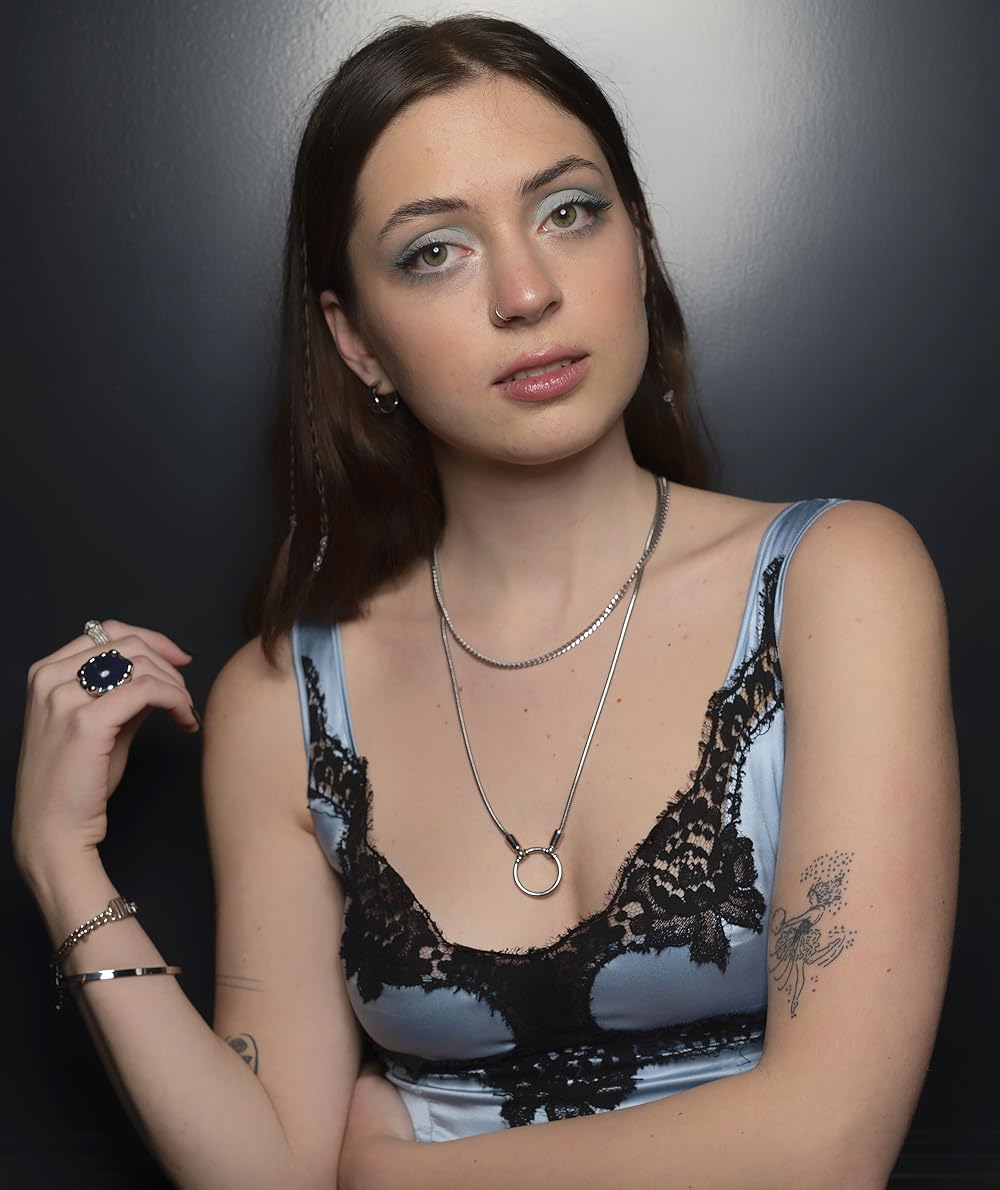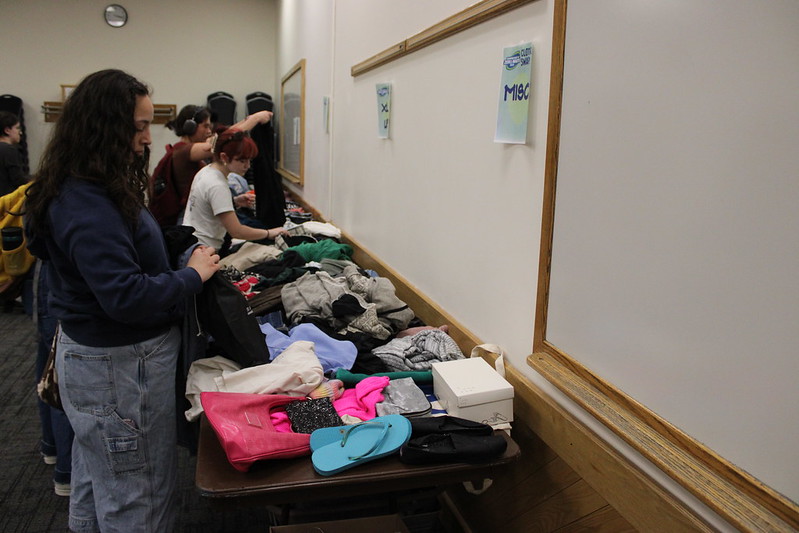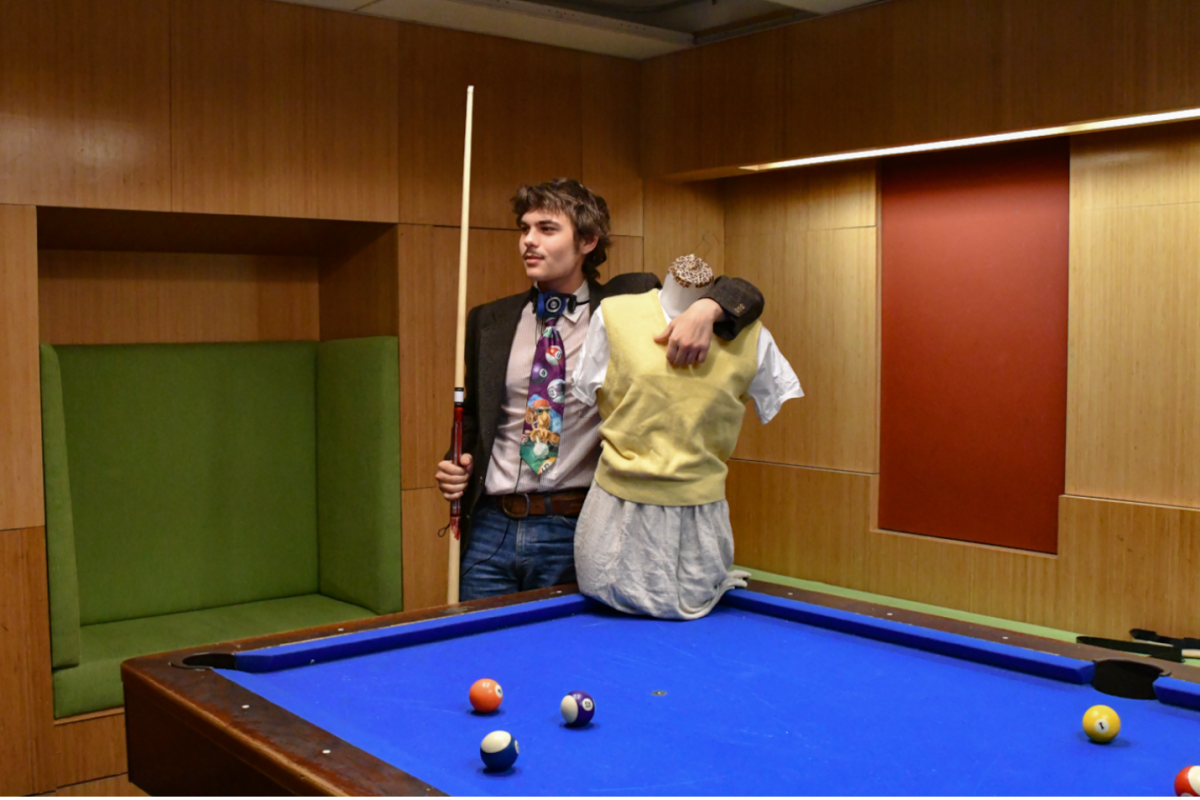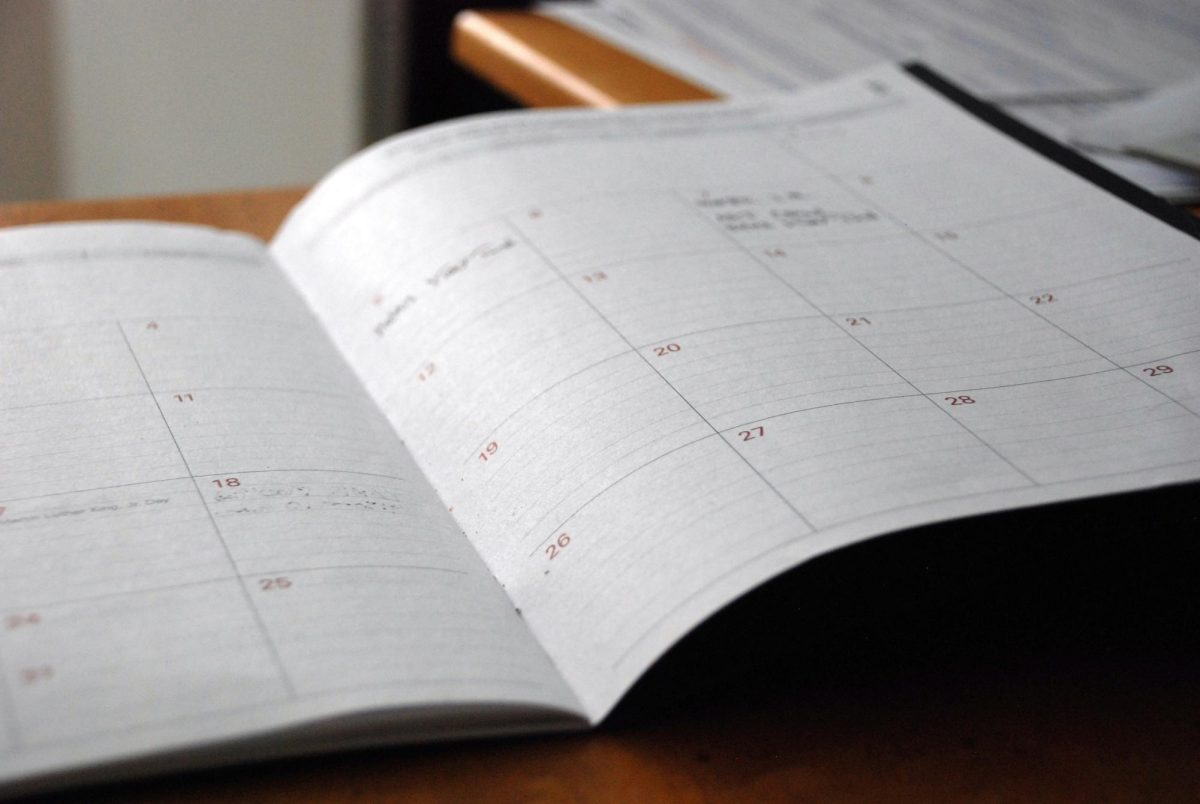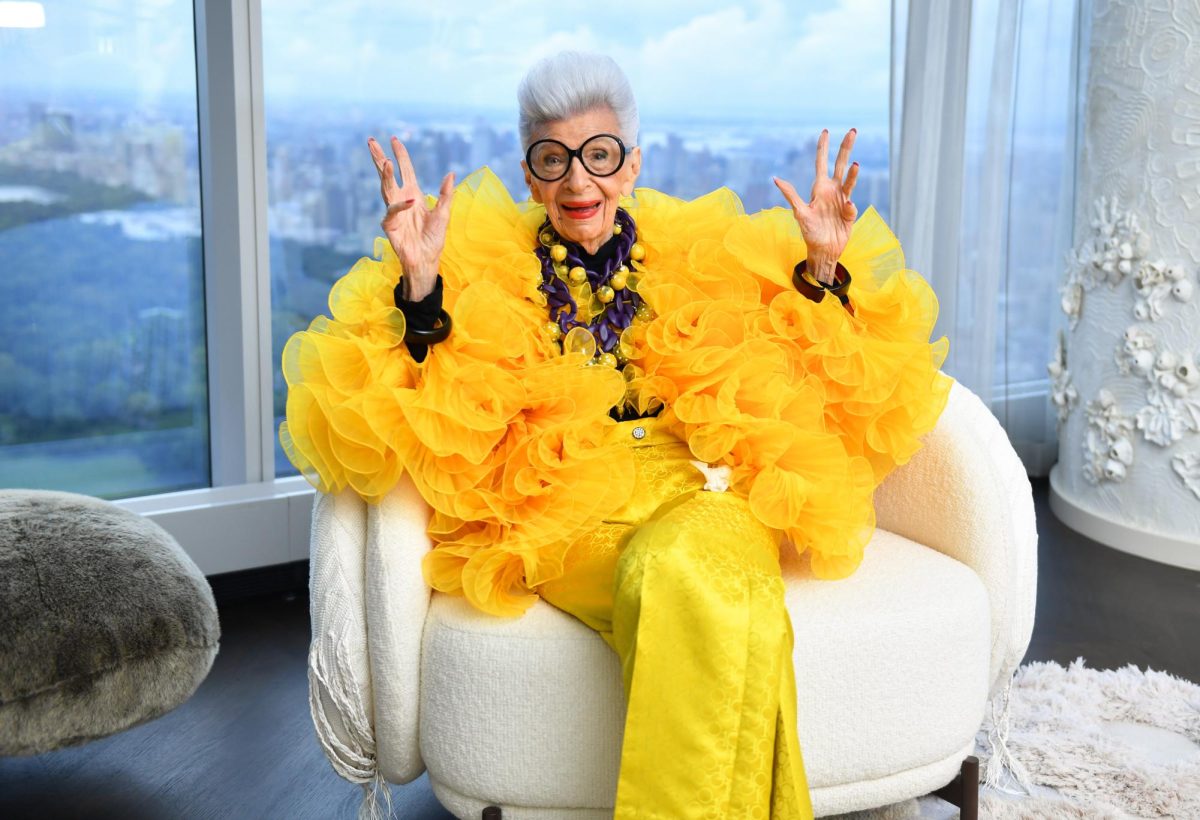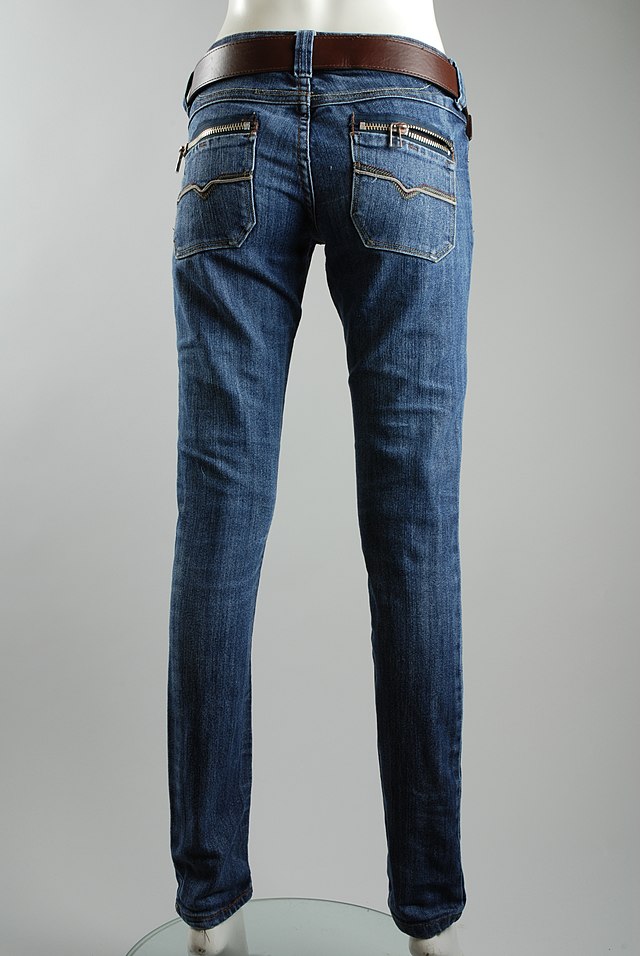
Having committed himself mentally and physically to the military life, University of Massachusetts graduate student and Iraq War veteran Tyler Boudreau didn’t expect his 12-year military career to end with the mental burdens so many of his compatriots carried away with them from the war.
The panel, “Art and the War Experience,” yesterday was the final event of a three-week-long art exhibition commemorating the wartime experience.
“I’m going to open up with a passage here called ‘F*****g rage,’ because that’s the kind of mood I’m in,” said Boudreau, who arrived to the event 45 minutes late because of car trouble.
The United States Marine Corps veteran authored “Packing Inferno: The Unmaking of a Marine” three years ago – a book that’s an autobiographical account of the mental disintegration of a combat soldier and the subsequent process of readjusting to life back home.
He gripped his book as he read, and furled the back half into a tight curl. The back legs of the chair rose well off the ground as Boudreau’s weight teetered on the front edge of the chair, angled to audience like the narrowed stance of a boxer.
Following Matt Mitchell, a soft-spoken oil-painting civilian from Northampton who spoke before him, the enraged lector Boudreau’s voice filled the Cape Cod Lounge in the Student Union.
As he recounted his rage through an animated reading and an array of anecdotes – including a fit of rage set off by a salad dressing bottle falling from a refrigerator – Doug Anderson, a Vietnam War veteran and author, smiled an uncharacteristic ear-to-ear grin and nodded knowingly.
Anderson had been the first to speak during the panel, sharing a series of poems from his collection, “The Moon Reflected Fire.”
He recalled the experience that first tipped him off that something wasn’t right, when his squad encountered a man while on patrol, and his squad leader started “pushing the man around” and coerced him out of his money.
“I arrived after the honeymoon was over,” Anderson said as he gripped his legs, hands dug deep into his pockets.
Returning from war wasn’t any easier. He described his long-haired, pot-smoking friends.
“It was a different world I came back to,” he said, and told of his subsequent addiction to drugs and alcohol that cost him his friends and countless relationships.
Their story echoes that of many veterans returning from war, and the central theme of the art exhibit that has taken place across campus over the past few weeks – and ends today.
“Like a lot of museums are trying to do now, we are using art as a therapeutic tool to help [the veterans] heal after they come home from war,” said Moema Lacerda Furtado, the director of education and engagement at the Fine Arts Center. “Our intention is to help them find their own way to survive and to move ahead through their artwork.”
The exhibition included a portrait series on display in Memorial Hall from photographer David Turner; a theatrical presentation of Tim O’Brien’s “The Things They Carried”; and a display of war art from 22 artists that was showcased at the Student Union Art Gallery.
“The goal of these events is to introduce the UMass community and the general public to veterans and what their experiences are, using art as a medium,” said Rob Wilson, the executive director of the veterans education project in Amherst. “The goal is to educate people and to encourage discussion about veterans and their war experiences, and to encourage people to learn more.
“A lot of people feel there is a real disconnect between the American public and the reality of the men and women who are serving in Iraq and Afghanistan, and what people who served in previous wars experience,” said Wilson.
Wilson explained that the lack of understanding has grown particularly significant because of the fully professional volunteer army that has been employed by the United States since the end of conscription. Wilson said it has heightened the feeling of isolation many people in the military feel towards the civilian public.
“Only 1 percent of our population is serving in the military. We’re hoping people will understand what war is and make informed decisions, whatever those decisions are,” Wilson said.
Artwork from World War II, Operation Desert Storm and the wars in Korea, Vietnam, Iraq and Afghanistan will be on display next door, at the Student Union Art Gallery, through today.
Mitchell’s series of war-related oil paintings, featuring soldiers and civilians alike, can be found at 100FacesofWarExperience.org.
Brian Canova can be reached at [email protected]












